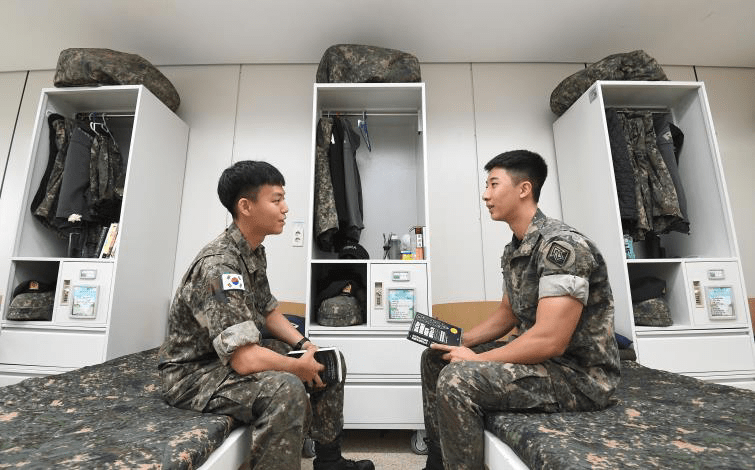Soldiers are seen conversing in their living quarters. (Photo provided by the Defense Daily)

The Defense Media Agency’s Defense Daily conducted a survey from May 28 to June 13 among 3,445 soldiers and military personnel regarding the MBTI types they prefer in superiors. The survey revealed differences in preferred superior types among soldiers, officers, non-commissioned officers, and civilian workers within the military.
Among 1,405 soldiers, the most preferred superior type was ‘ESFP’. Of the respondents, 64% chose extroversion (E), 63.8% chose sensing (S), 51.5% chose feeling (F), and 53.2% chose perceiving (P). The ‘ESFP’ type is characterized by being active, empathetic, and flexible.
In contrast, 710 officers mostly selected the ‘ESTJ’ type, with 63.9% choosing extroversion (E), 86.6% choosing sensing (S), 51% choosing thinking (T), and 61.4% choosing judging (J). The ‘ESTJ’ type is known to be organized, logical, and methodical.
Non-commissioned officers and civilian workers, comprising 697 and 633 respondents respectively, preferred the ‘ESFJ’ type in superiors. This type is extroverted, sociable, and combines planning with empathy. Among non-commissioned officers, 64.1% identified with extroversion, 88.4% with sensing, 54.4% with feeling, and 60.1% with judging. Among civilian workers, 51.8% chose extroversion, 87.5% sensing, 58.3% feeling, and 53.7% judging.
Respondents identified traits they expect in superiors, with soldiers emphasizing empathy and flexibility, officers valuing planning and initiative, and non-commissioned officers and civilian workers seeking consideration and trust.
There was a noticeable difference in preferred superior types between soldiers and senior officers. Soldiers preferred the flexible and empathetic ‘P’ type, whereas senior officers leaned towards the organized and systematic ‘J’ type.
This survey was part of the Defense Daily’s military life chart initiative. The results will be published in the Defense Daily’s print edition, website, and new media channels.